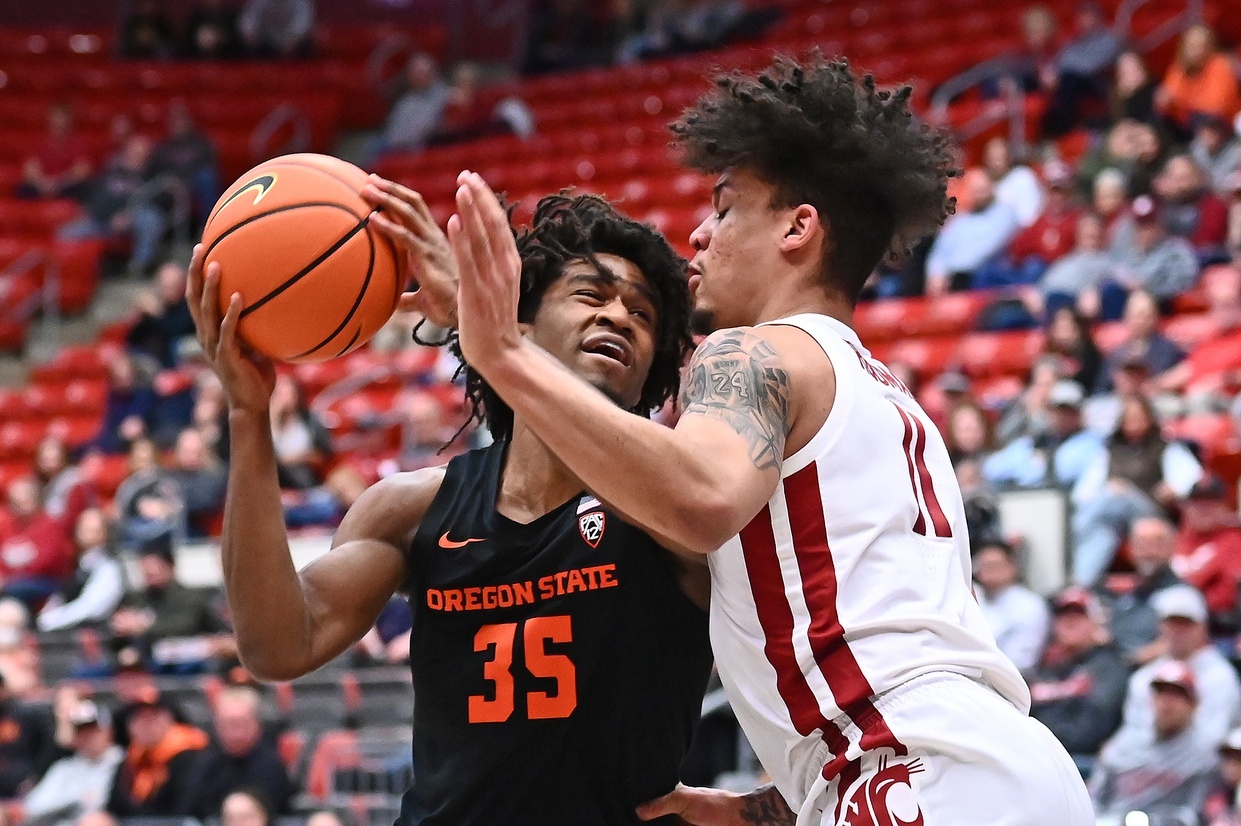On Thursday, the U.S. Department of Justice’s antitrust division announced that it had joined a lawsuit against the NCAA over transfer restrictions. The timing could not be more concerning for the NCAA, which spent Thursday morning advocating for antitrust protections in a hearing on Capitol Hill.
The lawsuit, first filed in December in West Virginia federal court, was brought by seven attorneys general who accused the governing body of violating antitrust law by forcing athletes to sit out a year if they wanted to transfer more than once. The parties agreed to a preliminary injunction that would suspend this rule for the rest of the 2023-24 academic year, though a trial will determine its ultimate fate.
“NCAA Division I institutions compete with each other not just on the playing field or in the arena, but to recruit and retain college athletes,” Assistant Attorney General Jonathan Kanter of the Justice Department’s Antitrust Division said. “College athletes should be able to freely choose the institutions that best meet their academic, personal, and professional development needs without anticompetitive restrictions that limit their mobility by sacrificing a year of athletic competition.”
The DOJ added itself as a co-plaintiff in the lawsuit in the amended complaint Thursday. This is the first time the DOJ has signed onto a state-led antitrust lawsuit, according to the Ohio attorney general’s office. However, it’s not the first time the DOJ under President Joe Biden has waded into college sports—Solicitor General Elizabeth Prelogar argued in favor of athletes in the Supreme Court case NCAA v. Alston in 2021.
The move “shows the DOJ’s continued eye on college sports as a walking antitrust violation,” Boise State sports law professor Sam Ehrlich tells Front Office Sports.







![[Subscription Customers Only] Jun 15, 2025; Seattle, Washington, USA; Botafogo owner John Textor inside the stadium before the match during a group stage match of the 2025 FIFA Club World Cup at Lumen Field.](https://frontofficesports.com/wp-content/uploads/2026/02/USATSI_26465842_168416386_lowres-scaled.jpg?quality=100&w=1024)
![[Subscription Customers Only] Jul 13, 2025; East Rutherford, New Jersey, USA; Chelsea FC midfielder Cole Palmer (10) celebrates winning the final of the 2025 FIFA Club World Cup at MetLife Stadium](https://frontofficesports.com/wp-content/uploads/2026/02/USATSI_26636703-scaled-e1770932227605.jpg?quality=100&w=1024)








